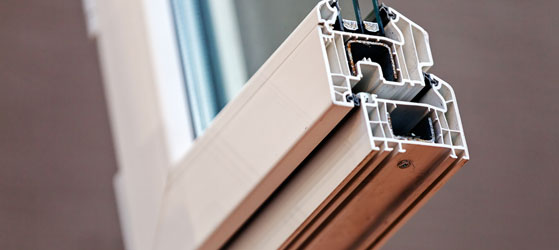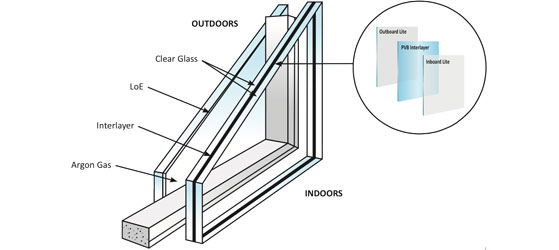Window Leaking
Windows Personality
Just like the people who purchase new windows or plan to execute repairs on existing windows in an office, home or getaway home-away-from-home, windows come in all shapes and sizes…and possess different ‘personalities’. There are numerous window types (awning windows, single & double slider windows, single & double hung windows, casement windows, bay & bow windows, end vent slider windows & picture windows) and various frame materials to consider (aluminum/metal, fibreglass, composite, vinyl & wood). There are different types of glass glazing layers, inert gas fills between window panes, tinting glass and varying types of coatings for numerous effects. When window leaking suddenly gets your attention, there could be at least one ‘personality’ factor that can usually be to blame. This happens far more regularly with older windows, or incorrect installation of new windows. Taking a peek outside, to where the frame of your window meets the siding or wall’s exterior…you should see a smooth line of caulking. Most often than not, outdoor caulking (because it is always exposed to weather and the sun) can dry out and crack, which will most definitely allow just enough rainwater into the frame of your window and cause a leak over time. Replacement of outdoor caulking is fairly simple and a cost-effective way of fixing the problem.
Windows Can Be Fickle
 Newer windows are manufactured with ‘weep holes’ for internal moisture (like condensation) to be drained out, but window leaking issues tend to be from the outside, with evidence showing on the inside. With so many ‘bits of this and that’ that makes up your windows finished product, including the frame, there is a chance for a window to break down and start leaking over time. Outside weather & temperature fluctuations are the biggest culprits of wearing down windows, their seals and the framing (window sills). Windows that are framed with wood are susceptible to moisture & decay, and wood does expand & contract with various weather conditions (as apposed to other materials that are more durable against weather like vinyl). The best foot forward…is to have one of our window specialists come to your home and assess and identify any window leaking issues you may have.
Newer windows are manufactured with ‘weep holes’ for internal moisture (like condensation) to be drained out, but window leaking issues tend to be from the outside, with evidence showing on the inside. With so many ‘bits of this and that’ that makes up your windows finished product, including the frame, there is a chance for a window to break down and start leaking over time. Outside weather & temperature fluctuations are the biggest culprits of wearing down windows, their seals and the framing (window sills). Windows that are framed with wood are susceptible to moisture & decay, and wood does expand & contract with various weather conditions (as apposed to other materials that are more durable against weather like vinyl). The best foot forward…is to have one of our window specialists come to your home and assess and identify any window leaking issues you may have.
Maybe Your Windows Aren’t to Blame
 Often at times, people see water spot damage close to or under their windows and automatically assume the window is leaking, but sometimes, this just is not the case. Water stains are evidence there is moisture entering a wall from the inside where you cannot see, and as water moves, it always finds the weakest spot to show itself (water is lazy and will find the easiest point to collect). Very rarely will a leak be found where it is showing evidence of its presence. Take a look outside of your home and check for cracks above, below and beside your window, if you can see an entrance point for rainwater, then you have solved the mystery and it is not your window leaking!
Often at times, people see water spot damage close to or under their windows and automatically assume the window is leaking, but sometimes, this just is not the case. Water stains are evidence there is moisture entering a wall from the inside where you cannot see, and as water moves, it always finds the weakest spot to show itself (water is lazy and will find the easiest point to collect). Very rarely will a leak be found where it is showing evidence of its presence. Take a look outside of your home and check for cracks above, below and beside your window, if you can see an entrance point for rainwater, then you have solved the mystery and it is not your window leaking!
Proactive Leak Prevention
Checking your windows periodically for any signs that there may be window leaking is always ideal during a heavy rain storm or a windy day where there is rain too. If your window is leaking and it is not raining, then it may just be a condensation issue. If you are noticing moisture collecting between the panes of glass in your window, then that could be caused by a worn or bad glass seal (typically, this means the insulating gas has been lost). If you have determined that your window or window frame is leaking, then check the window sealant (caulking), both outside and inside as it may be worn out or cracked and just needs to be replaced with new caulking (simple fix). Sometimes a leaking window (if the window is brand new) is an installation issue, which we can also resolve swiftly and easily for our customers. Most window leaking happens from the outside in, so regular checks of the exterior of your home around your windows for damage like thin cracks or holes, is a great proactive approach to save you time and money in the future. This also adds more energy-saving comfort to your home, cottage or office.